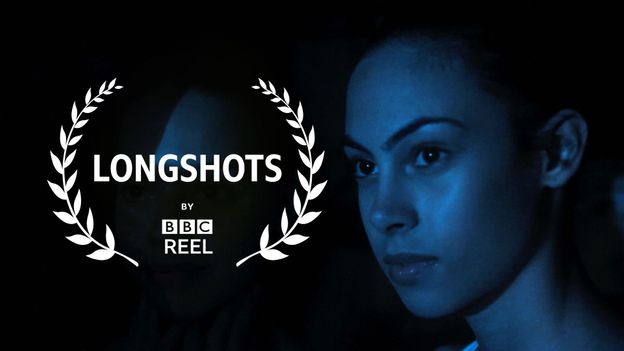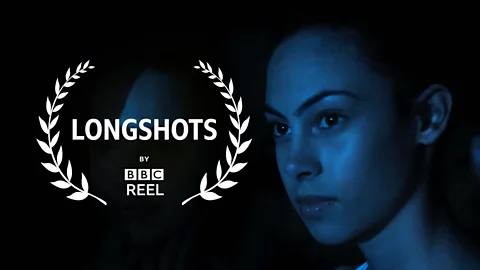
These bold new films exploring what it means to be human will be free to view as part of the BBC’s first online film festival, LongShots.
More than 70 documentaries were nominated by the festival’s official jurors – a group of industry experts, including Academy Award nominees, Emmy Award-winners and acclaimed artists.
The following seven outstanding films were shortlisted by LongShots curators to take part in the festival.
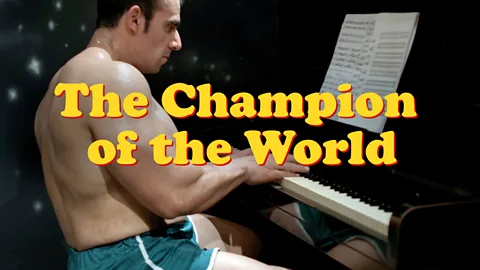
The Champion of the World
By Federico Borgia and Guillermo Madeiro
Ten years after winning a world title in bodybuilding in Russia, and becoming a star in Mexico, 43-year-old Antonio Osta leads a life of austerity in the rural town of Cardona, Uruguay where he grew up. Far removed from his former life of stardom, he now suffers from chronic kidney disease and comes into conflict with his young girlfriend and a teenage son.
But Antonio has a plan. He intends to return to bodybuilding and relive his former glory, by all means necessary.
Subtly exploring ideas around masculinity and success, Champion of the World is a universal portrayal of the eternal debate between generations, and will resonate with whoever has a father, or children.
Nominated by Petra Costa, Oscar-nominated director and actress:
“Champion of the World is an existential dive into what it means to be human through the lens of an improbable character. Antonio is a bodybuilder, a man with a strong body, a very vulnerable soul and an amazing sense of humour. His intimate relationship with his son, who constantly challenges him, brings light into so many aspects of masculinity. At the height of feminism’s fourth wave, this film offers us a unique vision into the toxic aspects of masculinity and its deconstruction through humorous exchanges of a father and a son. The dialogue exposes the abyss that exists between the two generations, and the boundless affection that transcends this fissure.”
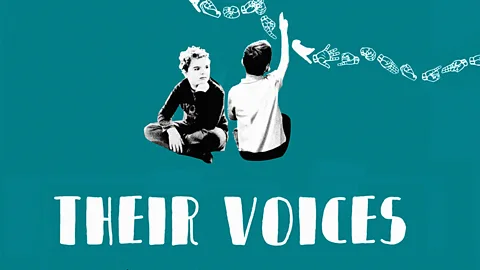
Their Voices follows, over the course of a year, a class of pupils at a boarding school for deaf children in the Polish city of Wrocław, the once-German Breslau. Slowly, through subtle observation and without a spoken word, filmmaker Eri Mizutani reveals their relationships, interactions and personalities. Getting to know their habits, gestures and facial expressions, we access an environment full of acceptance, understanding and airiness – so different from the world outside.
The film allows us to share the childrens’ emotions, their visions of the world and, eventually, to hear their voices.
Nominated by Ana Catala, Tribeca Film Institute:
“Through gentle observation, Eri conveys deep intimacy and closeness with a community of deaf and hard-of-hearing children at a boarding school in Poland. By becoming one with them, she invites us to be present in their fascinating world.
“The senses in the film, with or without words, with or without hearing, are elevated, and the haptics of sound are ever present, they vibrate, they touch. This film is a beautiful example of what it means to feel and be alive.”
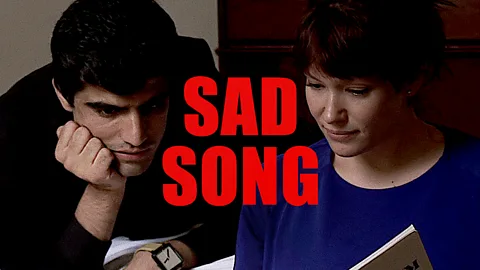
Elodie is a Parisian Baroque singer, and Ahmad is an Afghan refugee; Chanson Triste tells the story of their impossible love. Through a unique mix of documentary and fiction, music and poetry, re-enactment and reality, the viewer learns how Elodie became Ahmad’s tutor and how he, in turn, became her muse.
But they both have painful pasts. Elodie is haunted by her ex-boyfriend’s suicide, while Ahmad deals with the reality of being a refugee from Afghanistan, and a Muslim in Europe. Chanson Triste is a story of songs and introspection, hope and disappointment, but mostly, it’s a story of love.
Nominated by Corinne Bopp, artistic director at Atelier Varan, Paris:
“By giving her two protagonists a playful space and time to share, director Louise Narboni succeeds in telling a fantasy-romance.
Ahmad Shinwari and Elodie Fonnard appear as complete, young and lovely people, with their own emotions, longings and projects. They play a game; the characters and the scenes that they choose to create surprise us. They tell us more about their feelings, hopes and dreams than any filmed interview would.
The full transparency of the movie and its commitment to the bitter-sweet characters’ feelings define the refreshing and hearty modernity of Louise Narboni’s Chanson Triste.”
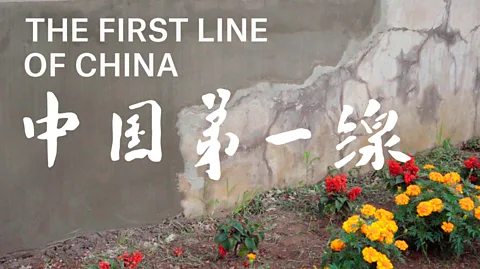
Haunted by post-socialist nostalgia, 25-year-old director Hanwen Zhang returns to the cement-factory town in northeast China in which he was born and raised.
The town’s official name is Sheep Pen Town, in the Shuangyang District of Changchun City, Jilin Province. People don’t really use this name, but currently refer to it as ‘the cement factory’. According to oral history, the town was known in the 1990s as ‘the first line of China’. Throughout the film, the director explores this clue to reveal a half-buried story.
The town was a product of China’s rapid and radical industrialisation in the 1980s, having been constructed simultaneously with a state-owned cement factory to house the workers who migrated there.
With a subtle irony and a nuanced but brave approach, Hanwen explores the history of his country and its ideology through the lenses of his own family and hometown.
Nominated by Academy Award shortlisted director, Nanfu Wang:
“I was impressed by the originality and maturity this film has. It’s a beautiful film about people’s relationship with space, ideology, memory, and images.”

Childhood, Boyhood, Youth
Rúben Gonçalves’ directorial debut is a gripping coming-of-age story, set within the walls of the National Conservatory Dance School in Lisbon, Portugal. The film takes us to the little-known, fascinating world of classical dance teaching, letting us witness moments of learning, rivalry and bonding between the students as they come closer to the most important decision in their lives.
The director follows the children and teenagers in the school, from the auditions to their last show as students.
With a hypnotic, observational approach, the film makes us remember the little joys, pains and challenges of growing up, and how sometimes our greatest competition is ourselves.
Nominated by Ana David, shorts programmer at Berlinale Panorama:
“There’s a certain quality of magnetism in the classic beauty of the movements Gonçalves’ camera captures with evident methodical sensibility and tangible care.
“Eventually, one understands his gaze is a free one, letting himself and his camera be recurrently drawn to certain dancers. It doesn’t take long until we too, the audience, merge our own curiosity with that of the maker of the film, and take delight in perceiving the vastness of youth blossoming in front of our eyes.”
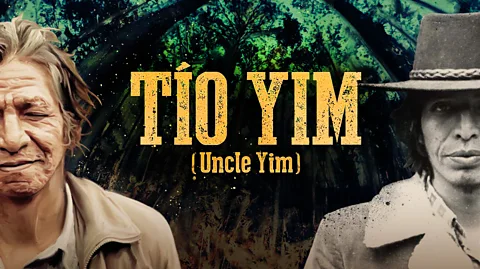
After 15 years of silence, an enigmatic indigenous community leader, philosopher and singer returns to music.
With a broken voice – and with the encouragement of his daughter, the filmmaker – he composes a song about his life. Through music and family, Maran starts to piece together her father’s tumultuous past to understand the cost of his aspirations.
She focuses on her father’s fight to defend his community’s values and traditions, but also on his long struggle with alcoholism. Filmed in Guelatao de Juárez, in the Oaxaca region, Mexico, Uncle Yim is the story of an absent father and a daughter trying to forgive him.
Nominated by Jose Rodriguez, director of documentary programs at Tribeca Film Institute:
“The film is a deeply intimate and raw portrait of a local community leader and singer-poet, who is also the filmmaker’s father. The filmmaker brings us into this delicate environment, and engages in a constant dialogue of understanding with her father – as we get a sense of the sacrifices that the father underwent to pursue his aspirations as a community leader.”
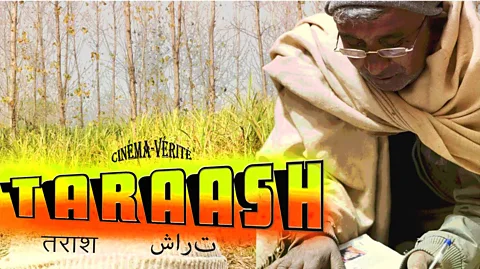
Kunwar, an Indian cattle farmer with an unexpected talent, harbours dreams that go well beyond his tiny rural village of Raipur Sadat in the District Bijnor, Uttar Pradesh (not to be confused with the city of Raipur in Chhattisgarh). He wants to become a Bollywood director. And despite lacking formal education and belonging to the marginalised Dalit community, the so-called ‘untouchables’, he has no doubt he will achieve his dream: he has already written multiple feature-length scripts.
Taraash follows Kunwar, as young director Ishan Siddiqui from Lucknow, India, together with his film school friends Hugh Clegg and Carlotta Grimaldi from London, give him the opportunity of a lifetime: to actually direct one of his screenplays, and see his name written on the big screen.
This heart-warming documentary invites viewers to share the magic of watching someone’s dreams come true.
Nominated by Bafta Breakthrough editor, Rebecca Lloyd:
“I loved Taraash as it is a humble and beautiful story of one man’s dreams coming true. Watching Kunwar directing his film and seeing his creativity realised on screen for the first time is a joy to see.”


